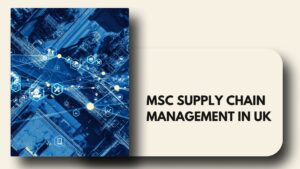- Affordable Master of Computer Science programmes in Australia range from AUD $25,000 to $46,300 (₹14.4L-₹26.7L) annually.
- Master of Computer Science programmes in Australia take 1.5-2 years and offer specialisations in AI, Cybersecurity, Cloud Computing, Data Science, etc.
- Master of Computer Science graduates in Australia earn lucrative salaries ranging from AUD $75,000 to $160,000 (₹43.7L-₹93.2L) annually across various tech roles.
- Top Universities in Australia for Master of Computer Science (QS Rankings 2026)
- Affordable Universities for Master of Computer Science in Australia (2025-26)
- Curriculum & Specialisations for Master of Computer Science in Australia
- Eligibility Requirements for Master of Computer Science in Australia
- Top Job Roles & Salary Packages After MS in Computer Science in Australia
- Post-Study Work Visa Options After MSc Computer Science in Australia
- Conclusion
- FAQs

The Australian technology sector is experiencing significant growth, creating genuine opportunities for skilled computing professionals across artificial intelligence, cloud computing, and cybersecurity domains. Technology jobs are projected to reach 1.2 million by 2030, reflecting the country’s commitment to becoming a leading digital economy. Your postgraduate qualification positions you directly within this expanding landscape.
In this blog, we will explore the top career opportunities, salary expectations, and pathways for international students pursuing a Master of Computer Science in Australia.
Top Universities in Australia for Master of Computer Science (QS Rankings 2026)
Australia has six universities ranked in the QS World University Rankings 2026 top 50, making it one of only five countries globally to achieve this distinction. These leading Australian institutions have built computer science programmes that respond directly to industry needs through research collaborations, internship opportunities, and curriculum designed with employer input.
| University Name | QS World University Ranking 2026 | Programme Name |
|---|---|---|
| University of Melbourne | 19 | Master of Computer Science |
| University of Sydney | 25 | Master of Computer Science |
| Australian National University (ANU) | 32 | Master of Computing |
| The University of Queensland | 42 | Master of Computer Science |
| Adelaide University | 82 | Master of Computer Science |
Affordable Universities for Master of Computer Science in Australia (2025-26)
Quality computer science programmes at affordable Australian universities start from AUD $25,000 (₹14.4L) annually. These institutions offer internationally recognised degrees at accessible tuition rates, making your technology career aspirations financially attainable without sacrificing academic standards or career outcomes.
| University | Programme Name | Annual Tuition Fee (AUD/INR) |
|---|---|---|
| Southern Cross University | Master of Computing | $25,000 (14.4L) |
| University of Wollongong | Master of Computer Science | AUD 40,944 (₹23.6L) |
| RMIT University | MSc Computer Science | AUD $38,400 (₹22.2L) |
| Flinders University | Master of Computer Science | AUD $40,900 (₹23.8L) |
| Macquarie University | Master of Information Technology | AUD $46,300 (₹26.7L) |
Curriculum & Specialisations for Master of Computer Science in Australia
A Master of Computer Science in Australia typically takes 1.5 to 2 years to complete and requires between 48 and 200 credit points, during which students gain both practical and theoretical skills, with the option to pursue flexible specialisations.
Core Modules: Algorithms and Computational Complexity, Advanced Database Systems, Software Engineering Principles, Distributed Systems and Cloud Computing, Artificial Intelligence and Machine Learning, Cybersecurity and Network Security, Data Analytics and Big Data Technologies
Specialisation Areas (Major Options): Artificial Intelligence, Cybersecurity, Database Systems, Internetworking, Computer Vision and Image Processing, Mobile Application Development, Blockchain and Distributed Ledger Technologies, Internet of Things (IoT) Systems
Practical Components: Most programmes include a capstone project where students work in teams to define, implement and evaluate real-world software systems.
Eligibility Requirements for Master of Computer Science in Australia
Australian universities assess applications holistically to identify students with both the academic foundation and motivation to excel in advanced computing studies.
Academic Entry Requirements:
Bachelor’s Degree: A bachelor’s degree in computer science, information technology, software engineering, or a related discipline with a minimum weighted average mark of 60-65% or equivalent CGPA (typically 6.0–6.5/10).
Verify your academic eligibility using our CGPA Calculator, helping you target the right universities with confidence.
English Language Proficiency Requirements (May vary by university)
- IELTS: 6.5 overall, with no band below 6.0
- TOEFL-iBT: 79-90
- Pearson PTE Academic: 58-64
- Cambridge English (C1 Advanced): 176+
- Duolingo English Test: 105-120
- For IELTS preparation, join our FREE IELTS Bootcamp course, which includes section-wise mock tests, real-time feedback, and guidance from certified instructors.
Top Job Roles & Salary Packages After MS in Computer Science in Australia
Postgraduates in computer science in Australia can expect annual salaries from AUD $75,000 to $160,000 (₹43.7L–₹93.2L), with great opportunities in software development, data science, AI, cybersecurity, and cloud technologies.
| Job Role | Average Salary Range (Annual) | Top Employers in Australia |
|---|---|---|
| Software Engineer | AUD $75,000-$130,000 (₹43.7L-₹75.7L) | Atlassian, Canva, Afterpay |
| Data Scientist | AUD $85,000-$145,000 (₹49.5L-₹84.5L) | Commonwealth Bank, Telstra, Quantium |
| Cybersecurity Analyst | AUD $80,000-$140,000 (₹46.6L-₹81.6L) | BAE Systems, Accenture, PwC |
| Cloud Solutions Architect | AUD $95,000-$160,000 (₹55.3L-₹93.2L) | AWS, Microsoft, IBM Australia |
| AI/Machine Learning Engineer | AUD $90,000-$155,000 (₹52.4L-₹90.3L) | Google Australia, REA Group, Cochlear |
| DevOps Engineer | AUD $85,000-$145,000 (₹49.5L-₹84.5L) | Atlassian, Xero, WiseTech Global |
Post-Study Work Visa Options After MSc Computer Science in Australia
International graduates with a master’s degree in Computer Science can work in Australia through the Temporary Graduate visa (subclass 485). This visa allows you to gain Australian work experience and build professional networks after graduation.
Duration: Indian nationals can stay in Australia for 3-4 years (*depending on the campus; regional/ non regional) after completing a master’s degree (coursework or research).
Pathway to Permanent Residency
The 485 visa serves as a bridge to permanent residency. After gaining Australian work experience on your 485 visa, you can apply for:
Temporary Visas Leading to PR:
- Skills in Demand visa (subclass 482) – Employer-sponsored temporary visa (replaced TSS visa on December 7, 2024). Valid for up to 4 years and provides pathway to permanent Employer Nomination Scheme (186) visa
Permanent Residency Visas:
- Employer Nomination Scheme (subclass 186) – Direct permanent residency through employer sponsorship
- Skilled Independent visa (subclass 189) – For highly skilled workers without sponsorship
- Skilled Nominated visa (subclass 190) – State or territory nominated permanent visa
- Skilled Work Regional visa (subclass 491) – Regional provisional visa (leads to PR after 3 years)
Conclusion
A Master of Computer Science in Australia opens the door to one of the world’s fastest-growing tech markets. Accessible programs range from AUD $25,000 to $46,300 (₹14.4L-₹26.7L) offering 3-4 years of post-study work rights to gain hands-on experience. The job market is booming, with 1.2 million tech roles projected by 2030 and salaries ranging from AUD $75,000–$130,000 (₹43.7L–₹75.7L) for software engineers, higher for AI and cloud roles.
With strong infrastructure and growing demand, Australia is the ideal place to develop skills, gain experience, and launch a successful tech career for Indian students.
AdmitX helps you navigate every step of your study abroad journey—from choosing the right university to securing your visa and accommodation.
- University Selection Guidance
- SOP Review
- Study-Abroad Document Templates
- Free IELTS Bootcamp Course
- Scholarship Assistance
- Visa Support Services
And much more!
Book your FREE study abroad counselling session with our experts today!
FAQs
What is the duration of a Master of Computer Science in Australia for Indian students?
A Master of Computer Science in Australia typically takes 1.5 to 2 years to complete, requiring 48 to 200 credit points for graduation.
What are the eligibility requirements for an MSc Computer Science in Australia for Indian students?
Indian students need a bachelor’s degree in Computer Science, IT, or a related field with 60–65% marks and English proficiency (IELTS 6.5 overall, with no band below 6.0).
Do Australian universities accept three-year bachelor’s degrees from India for Master of Computer Science admission?
Yes, most Australian universities accept three-year Indian bachelor’s degrees, although some may require additional coursework or relevant experience.
Is the GRE required for Master of Computer Science admission in Australian universities?
No, GRE scores are generally not required for admission to Master of Computer Science programmes in Australia.
What are the affordable universities for MSc Computer Science in Australia in 2025–26?
Affordable universities include Southern Cross University (AUD $25,000 / ₹14.4L), University of Wollongong (AUD $40,944 / ₹23.6L), and RMIT University (AUD $38,400 / ₹22.2L) per year.
What is the cost of living for Indian students pursuing a Master of Computer Science in Australia?
The average cost of living for international students in Australia ranges from AUD $21,041 to $30,000 per year (₹12.3L–₹17.5L), depending on location and lifestyle.
Can Indian students work part-time whilst studying for a Master of Computer Science in Australia?
Yes, international students on a Student Visa (subclass 500) may work up to 48 hours per fortnight during term time and unlimited hours during semester breaks.
What is the post-study work visa duration for Computer Science graduates in Australia?
Master’s graduates from India can work in Australia for 3-4 years post-graduation, with the exact duration determined by their campus location (regional or non-regional areas).
What is the age limit for applying to the Temporary Graduate Visa (subclass 485) in Australia?
The age limit for applying for the Temporary Graduate Visa (subclass 485) is 18 to 35 years.
What salary can Computer Science graduates expect in Australia after completing their master’s?
Graduates with a Master of Computer Science in Australia earn between AUD $75,000 and $160,000 per year (₹43.7L–₹93.3L), depending on experience and specialisation.
If you are an aspirant looking to study at your dream university, book an appointment with AdmitX today and start your applications early to avail yourself of all the benefits.

















